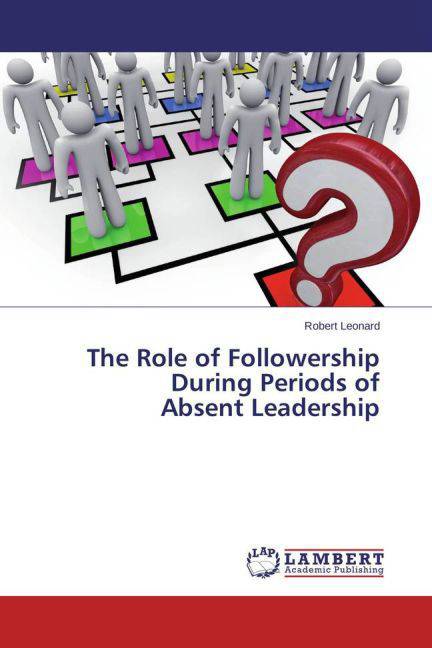
Bedankt voor het vertrouwen het afgelopen jaar! Om jou te bedanken bieden we GRATIS verzending (in België) aan op alles gedurende de hele maand januari.
- Afhalen na 1 uur in een winkel met voorraad
- In januari gratis thuislevering in België
- Ruim aanbod met 7 miljoen producten
Bedankt voor het vertrouwen het afgelopen jaar! Om jou te bedanken bieden we GRATIS verzending (in België) aan op alles gedurende de hele maand januari.
- Afhalen na 1 uur in een winkel met voorraad
- In januari gratis thuislevering in België
- Ruim aanbod met 7 miljoen producten
Zoeken
€ 57,95
+ 115 punten
Omschrijving
With a culture focused on leadership, the purpose in this study was to explore untested assumptions about followers and their being ignored as independent productive actors in the workplace. The lived experience of followers and their impact on the success or failure of organizations during periods of absent leadership was explored via 4 independent situations. A qualitative, phenomenological research design based primarily on the theoretical framework of Moustakas and the research design of Patton guided the study. The 3 key research questions were explored with regard to followers during periods of absent leadership: how they respond, what actions they take to fill the void, and the purpose of their actions and reactions. The qualitative data were coded and centered around 4 themes: (a) productivity, (b) morale, (c) direction, and (d) interpersonal behavior during periods of absent leadership. The results indicated that followers did not descend into chaos without leaders, thus refuting a primary conjecture about their assumed workplace behavior. Instead, emergent consensual self-managing teams arose, and resulting in a proposed organization-member exchange (OMX).
Specificaties
Betrokkenen
- Auteur(s):
- Uitgeverij:
Inhoud
- Aantal bladzijden:
- 312
- Taal:
- Engels
Eigenschappen
- Productcode (EAN):
- 9783659691133
- Verschijningsdatum:
- 14/04/2015
- Uitvoering:
- Paperback
- Afmetingen:
- 150 mm x 220 mm
- Gewicht:
- 458 g

Alleen bij Standaard Boekhandel
+ 115 punten op je klantenkaart van Standaard Boekhandel
Beoordelingen
We publiceren alleen reviews die voldoen aan de voorwaarden voor reviews. Bekijk onze voorwaarden voor reviews.









